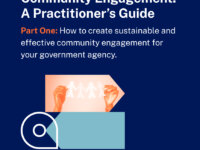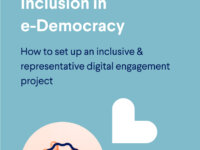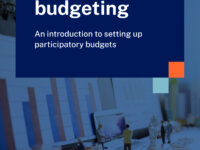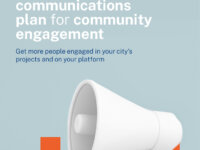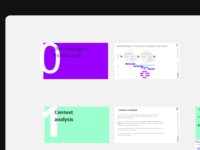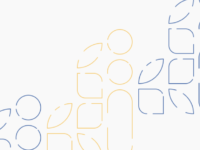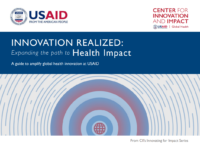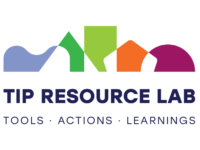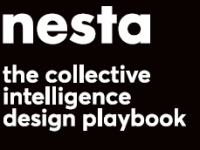Toolkit Navigator
A compendium of toolkits for public sector innovation and transformation, curated by OPSI and our partners around the world

This guide provides users with tips to better understand their community and capacity for community engagement, strategies to define engagement goals and ways to align community, capacity and goals. Developed in collaboration with the company Department of Civic Things, this resource explores the steps needed to create a sustainable and effective engagement strategy for your government agency. The resource is divided into two parts: Part One focuses on upfront strategy and planning; and, Part…
This resource provides users with essential principles to ensure inclusivity when building a digital participation platform. The guide puts forward rules on how to communicate inclusively, guidelines on how to build an inclusive questionnaire, tips on how to combine offline and online participation and ensure representation, practical measures to build adaptable digital solutions and real-life examples for inspiration. It includes guidance and tips on how to identify groups at risk of exclusion,…
Participatory budgeting is a community engagement method for governments looking to make their communities more inclusive and participatory. This guide provides key steps for developing a defined, efficient and effective participatory budgeting process, real-life examples and best practices and an interactive worksheet to get you started. By organizing a participatory budget, public officials can tap directly into the collective intelligence of their communities and align the allocation of…
This guide will teaches the basics of setting up a communications plan for your community engagement efforts. The guide covers how to set up a communication plan across three engagement project phases (launch, in-progress, and report-out phase) and walks through the core, strategic steps needed. Each section includes checklists and practical tips. It draws on best practices and lessons learned from CitizenLab's collaboration with 400+ local governments worldwide. This resource is distributed via…
This Handbook for Working Innovatively in Public Administration guides you through the different phases of an innovation process. It contains templates and working documents tailored to the needs of public administrations. They explain various innovation methods, describe what is needed to apply these methods, detail how to actually implement these methods, and highlight what results can be expected. From preparation and team building, to research and brainstorming, to the development and…
The AI4GOV Toolkit is aimed at fostering a human-centered and systemic perspective towards the development of public services that integrate artificial intelligence in a meaningful way. The toolkit offers a methodology and specific tools for the application of AI in real public sector projects aimed at solving societal needs, considering technology not as an end but as a means for reaching wider strategic objectives. The tools within this toolkit span throughout four main phases of the design…
The toolbox for designing digital services is intended to help public service owners, managers and other interested parties understand the design process and includes tools to make the process smooth. The process is described both in Estonian and English but tools are only in Estonian, which can be machine translated. The resource includes guidance on preparation and building a service team, understanding and choosing a focus, problem identification and solving, testing solutions, development of…
This resource is a guide to amplify global health impact from the perspective of a development organisation. It builds on the successes of USAID's work and lays out practical ways to identify opportunities to apply innovation to solve real problems using a portfolio approach. The resource has been co-developed with significant input from USAID colleagues across their health offices, and captures best practices and innovation opportunities, dispels myths and highlights examples of and resources…
The Transformative Innovation Policy (TIP) Resource Lab contains over 250 resources (such as tools, interactive canvases and narrative guides) structured across five components:
1. Systems, anticipation and transformative theory of change
2. Experimentation in policies and programmes
3. Evaluation using transformative outcomes
4. Capabilities - personal, organisation, and facilitating contestation
5. Knowledge communities and infrastructures
The resource includes lessons for the design and…
The Collective Intelligence Design Playbook, created by Nesta, offers a wide range of tools, tactics and methods to engage collective intelligence to solve societal challenges. Through practical instructions and case studies, the Playbook presents ways to orchestrate diverse groups of people, data and technology.
It is designed to be applied by teams or groups and features an introduction to help users understand the scope and potential of collective intelligence, practical guidance to sustain…

